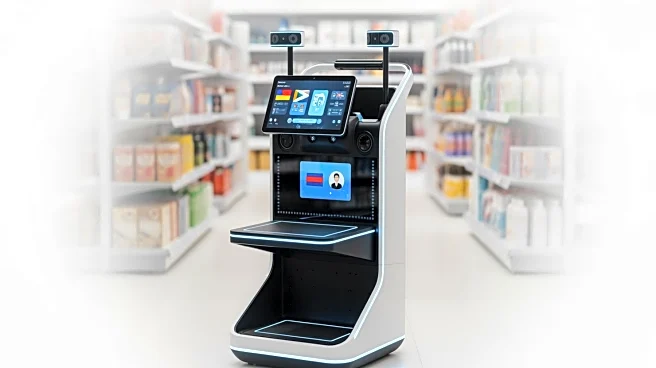What's Happening?
Retail giants such as Walmart, Amazon, and Lowe's have launched generative AI-powered shopping assistants to improve the shopping experience for their customers. These AI tools utilize large language models that are trained on the retailers' product catalogs,
enabling them to assist shoppers in finding relevant products. For instance, Lowe's has introduced the Mylow bot, which provides guidance on tasks like troubleshooting a leaky faucet or refinishing a tabletop. Additionally, AI companies like ChatGPT and Microsoft have integrated agentic shopping features into their platforms, with partnerships involving retailers such as Etsy, Shopify, and Walmart. These collaborations allow customers to complete purchases directly through chat interfaces.
Why It's Important?
The introduction of AI-powered shopping assistants marks a significant shift in the retail industry, as it leverages advanced technology to enhance customer service and streamline the shopping process. This development is crucial for retailers aiming to stay competitive in an increasingly digital marketplace. By offering personalized assistance and simplifying the purchasing process, these AI tools can potentially increase customer satisfaction and loyalty. Moreover, the integration of AI in retail could lead to more efficient inventory management and targeted marketing strategies, benefiting both consumers and businesses. As economic uncertainty looms, such innovations may provide retailers with a competitive edge in attracting and retaining customers.
What's Next?
As AI-powered shopping assistants become more prevalent, retailers may continue to refine and expand these technologies to cover a broader range of customer needs. Future developments could include more sophisticated AI capabilities, such as enhanced natural language processing and predictive analytics, to further personalize the shopping experience. Retailers might also explore additional partnerships with tech companies to integrate these tools across various platforms and devices. The success of these AI initiatives could prompt other industries to adopt similar technologies, potentially transforming the landscape of customer service and e-commerce.














